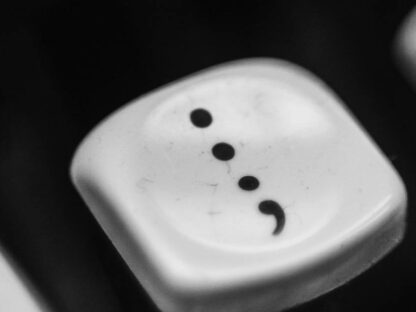Grammar
A collection of posts about issues related to grammar. Brush up on your skills and make sure you can create grammatically perfect writing with Knowadays.
-

What Is a Dangling Modifier? (With Examples)
What Is a Dangling Modifier? (With Examples)
Jan 16, 2023
As a proofreader, you’ll need to spot and fix grammatical errors. One of the most common of these is the dangling modifier. In this post, we’ll provide a crash course on what dangling modifiers are, how to identify them, and what to do with them when proofreading. What Is a Dangling Modifier? A modifier is […]
-

How to Use Comparatives and Superlatives (With Examples)
How to Use Comparatives and Superlatives (With Examples)
Jan 09, 2023
Comparatives and superlatives can be a confusing part of grammar, particularly for ESL writers. In this guide, we talk you through the rules for forming comparative and superlative adjectives, and what to look out for when proofreading them. What Are Comparatives and Superlatives? Comparatives and superlatives are both types of adjectives. Comparative adjectives are words […]
-

When to Use “I” and “Me” in a Sentence
Nov 19, 2022
Is it “you and me” or “you and I”? This can be a complex question, even for native English speakers. The difference lies in whether you need to use a subject pronoun or an object pronoun. In this post, we’ll dig into what these pronouns are and how to establish when “I” or “me” is […]
-

Whomever or Whoever: What’s the Difference?
Nov 06, 2022
If you’re confused about when to use whomever or whoever, you’re not alone. In today’s post, we’ll explain the difference between whomever and whoever and how you can determine which one to use. Who and Whom Whoever and whomever take their forms from who and whom, two words that belong to a time when many […]
-

How to Use Semicolons (With Examples)
Oct 24, 2022
A semicolon (;) is a punctuation mark that indicates a pause, and it typically serves two purposes: linking two closely related independent clauses and separating items in a multipart list. But how are they different from colons? And when is a semicolon a better choice than a comma? As a proofreader, you’ll need to know […]
-

The Bad Big Wolf? A Proofreader’s Guide to Adjective Order
Oct 08, 2022
If the phrases “black little dress” and “red dry wine” sound strange in your head, you have intrinsic knowledge of English adjective order. When we use multiple adjectives to modify a noun or nouns, they don’t fall into a random sequence. Rather, they follow a pattern based on their function. In fact, most native English […]
-

Proofreading Tips: A Guide to Countable and Uncountable Nouns
Aug 04, 2022
Common nouns can be either countable or uncountable. But what does this mean in practice? And what does a proofreader need to know about countable and uncountable nouns? In this post, we set out the basics of how these noun types work and some common errors to look out for. What Are Countable Nouns? Countable […]
-

Proofreading Tips: Is or Are? A Guide to Collective Nouns
Jul 20, 2022
Collective nouns are nouns that refer to a group of people or objects, including words like team, family, and crowd. But are they singular or plural? And how do you use collective nouns in a sentence? These are things you need to know as a proofreader. Read on to find out more. Collective Nouns and […]
-

What Is the Difference Between an Acronym and an Initialism?
What Is the Difference Between an Acronym and an Initialism?
Jul 13, 2022
Acronyms and initialisms are both types of abbreviations. For most people, there’s no pressing need to know the difference between the two. However, most people aren’t professional proofreaders. For this rare breed, understanding the difference between an acronym and an initialism is necessary. With that in mind, in this blog post we take a closer […]
-

5 Tips on How to Write the Perfect Christmas Card
5 Tips on How to Write the Perfect Christmas Card
Dec 18, 2021
It’s that time of year again! Christmas is just around the corner, and you’ve got a lot to do – wrapping presents, buying food, writing Christmas cards… the list goes on. It would be easy to let your proofreading standards slip! But to help you avoid this, we’ve come up with five tips on writing […]